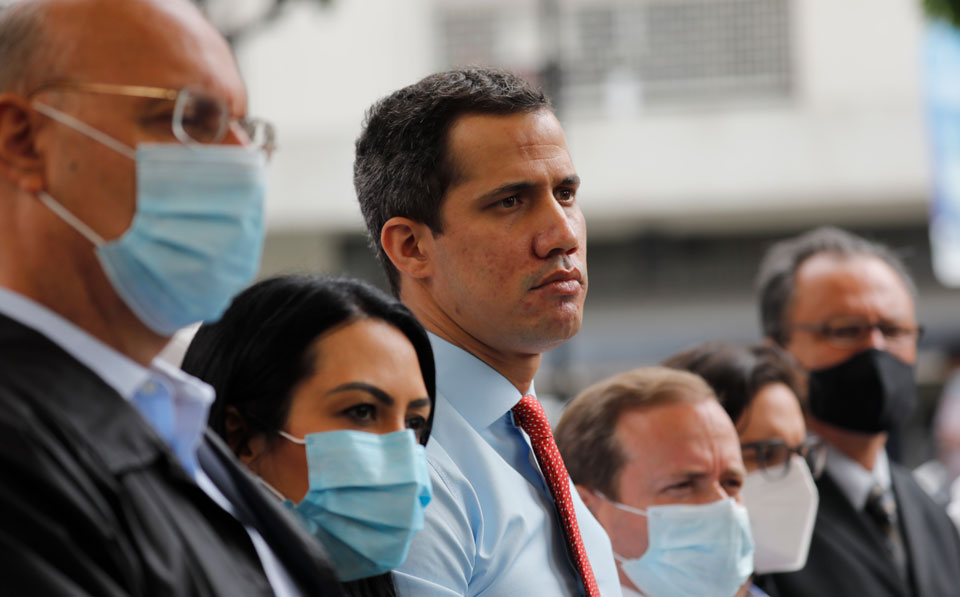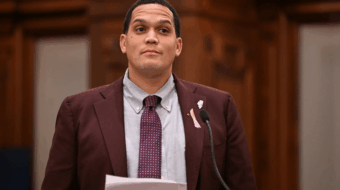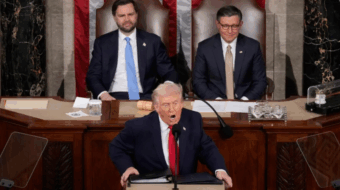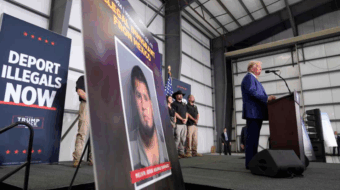
The European Union has de-recognized Juan Guaidó as the “Interim President” of Venezuela as of Wednesday, Jan. 6. The move came after Guaidó lost his position as the head of the Venezuelan National Assembly following the December 2020 parliamentary elections. The European Commission declared that this was the will of all EU governments. Commission spokesman Peter Stano stated, “This is a text agreed and adopted by 27 EU member states.”
The EU had been recognizing Guaidó as the de facto head of state since January 2019. Following this decision, the EU also instituted an arms embargo and trade sanctions against members of Venezuela’s government.
Guaidó’s recognition as interim president by the United States and the EU have been widely viewed as an attempt to overthrow the democratically elected socialist government of Venezuela. Guaidó has called for the overthrow of President Nicolás Maduro’s government, and at least two coups have been attempted, one in April 2019 called “Operation Freedom” and another in May 2020 called “Operation Gideon” which involved two American Special Forces soldiers.
The reelection of Maduro in 2018 was recognized by Mexico, Bolivia, Cuba, Suriname, Nicaragua, South Africa, China, Russia, Democratic People’s Republic of Korea, and Turkey, among other states. Months later, in November 2020, a coup successfully deposed the democratically elected socialist leader of Bolivia, President Evo Morales. The Trump administration and its allies hoped to engineer the same outcome in Venezuela
These embargo and sanctions put in place by the EU came after it declared the Venezuelan elections of May 2018 to be undemocratic. Maduro responded to the EU’s actions by saying the leaders of Europe were “sycophants” who were “kneeling behind the policies of Donald Trump.”
The U.K. government followed with the seizure of $1 billion worth of Venezuelan gold stored in London. A U.K. high court ruled that the gold was to be placed under the control of Guaidó as the legitimate interim president of Venezuela. This decision was highly controversial, as the Venezuelan government intended to sell the gold for hard currency to help combat the COVID-19 pandemic.
In early 2020, Guaidó was a guest of honor at Trump’s 2020 State of the Union address to Congress and received a standing ovation from both Republicans and Democrats. Despite the shift from Europe, the U.S. and the U.K. continues the charade of claiming Guaidó is Venezuela’s leader.
Elections for the National Assembly last month saw Maduro’s party, the PSUV (United Socialist Party of Venezuela), win a staggering 219 out of 277 total seats after opposition parties boycotted participation. Maduro asked the EU to send a delegation to observe the election, but it declined.
This decision to formally de-recognize Guaidó does not mean, however, that the European Union no longer has an interest in Venezuela’s internal politics or Guaidó himself. Josep Borrell, foreign affairs chief of the EU, referred to Guaidó in his latest statement as one of the “political and civil society actors striving to bring back democracy to Venezuela.” Borrell continued, saying that the new National Assembly is not legitimate because it is “undemocratic.” The EU still does not recognize Maduro as the legitimate president.
But Guaidó has now stopped styling himself as the interim president. He and his associates now refer to themselves as the “Board of Directors” of a “recently constituted Delegated Commission” of the “legitimate National Assembly.”
As the United States and EU see the likelihood of a Guaidó-led government coming to power in Venezuela fade away, the EU may use this as an opportunity to further decouple its foreign policy from that of the United States. The new EU-China investment deal, alongside de-recognition of Guaidó, could represent the beginning of a change in course for EU foreign policy.
Venezuela began its first legislative session of its new parliament on Jan. 7. One of its first actions was the creation of a special commission on national reconciliation.










